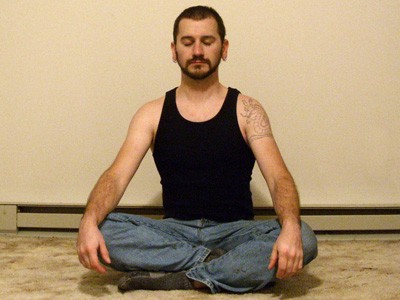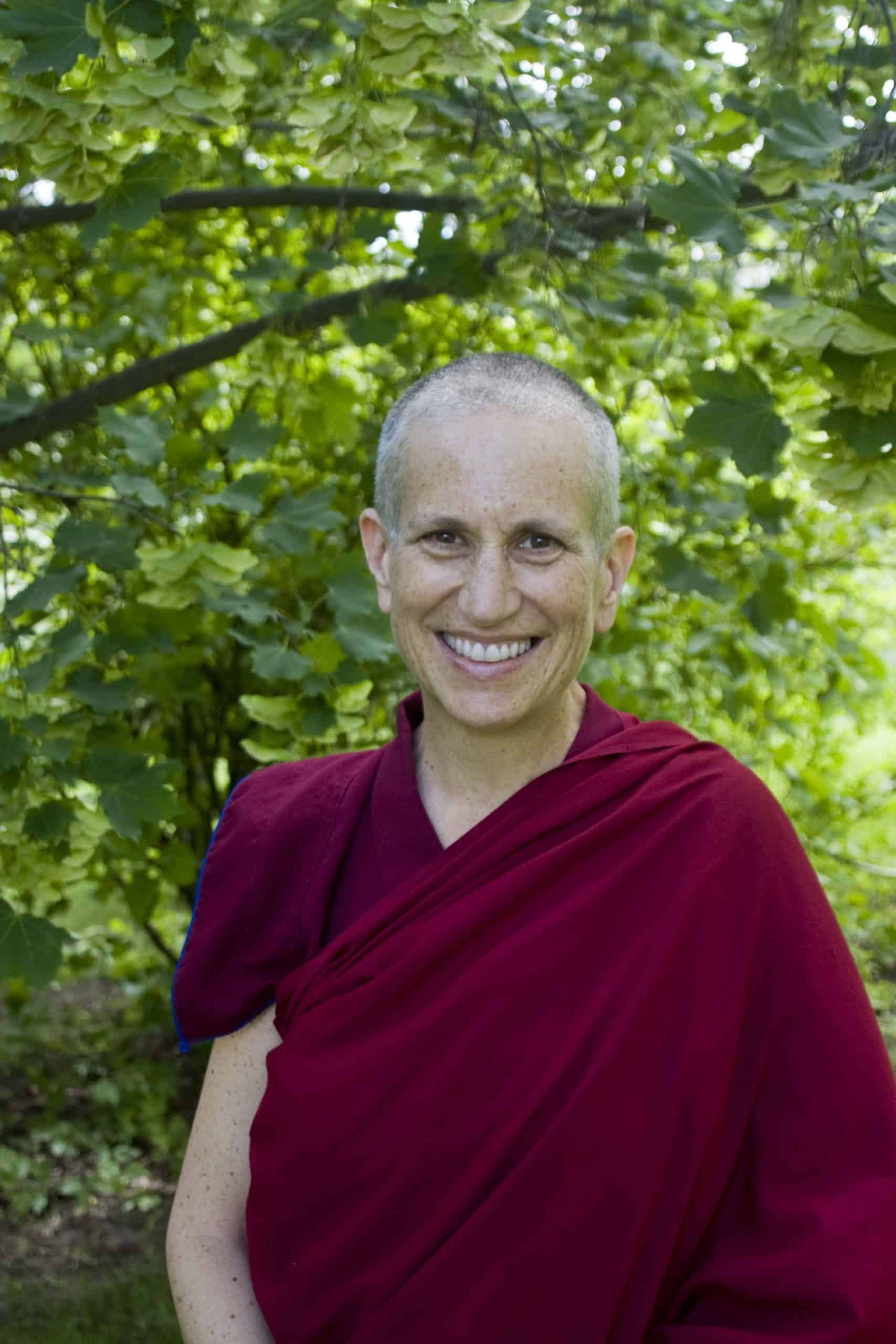Daishin, big mind
By S. D.

Sometimes it’s the difficulties in life that end up teaching us the most. In prison there are a lot of difficulties to contend with. Some are rightly deserved, a natural part of the experience garnered by our having committed a crime. Others are heaped upon us by those who believe the prison experience isn’t quite punishment enough and feel it not only their duty but their pleasure to add to it as opportunity presents itself.
As with most things in prison there is little choice but to go through the difficulties we’re faced with. How we go through them is another matter altogether. Do we succumb to the adversity and grow bitter and angry, or do we use even the worst of circumstances to bring about positive change that allows us to grow as human beings? Hopefully we aspire to the latter; an aspiration which is greatly helped by what in Soto Zen is referred to as daishin, or Big Mind.1 Daishin is the practice, both during meditation and in everyday life, of self settling upon self, or letting go of the “I”-based constructs we so desperately grab hold of and owning the circumstances of our lives with openness, courage, and magnanimity.
Unfortunately, the cultivation of daishin is far easier to write about here than it is to practice, especially during difficult times when it could really benefit us. I was reminded of this not long ago when, after working a job assignment in the kitchen for eight months, the inevitable finally happened, and I was fired. I say inevitable because the kitchen is notorious for firing workers. Some supervisors even make a game out of the practice and feel disappointed if they go too long without getting rid of someone.
Getting fired from a job in prison isn’t quite the same as when you get fired on the streets. For one thing, getting fired in here is almost always followed with a disciplinary report or “ticket” as it’s commonly referred to. A ticket is used to charge an incarcerated person with some type of rules infraction in order to justify the supervisor’s decision to fire. Unfortunately a ticket will usually result in a person being sent to segregation for months at a time.
My ticket included three charges; insolence, unauthorized movement, and disobeying a direct order. Any one of these charges could easily land me in seg. for several months. All together, I was looking at up to a year.
The problem is I wasn’t guilty. As near as I’ve been able to piece together over the last few months, the supervisors who wrote my ticket had in fact asked me to do something that day. Unfortunately, having complete loss of hearing on my right side and working in an extremely noisy area with industrial size fans blowing, people yelling back and forth, pots and pans banging together as food lines are being served, I simply didn’t hear him and went back to my regular job assignment. Naturally, he took it personally, thinking I was ignoring him. Instead of calling me back or in some other way confronting me, he simply wrote me a ticket.
This of course wouldn’t have meant much to the adjustment committee who hears the ticket and metes out the punishment. Most of the time, if a report is written, the supervisor or officer is taken at his word in a show of solidarity against the incarcerated population as a whole. Sadly, this attitude is a fact of life in prison, one that keeps tensions high and in the long run causes far more problems than it ever solves.
When I got back from work the day I received my ticket, my cell was immediately put on deadlock status. This meant I was no longer allowed to leave my cell until the ticket was adjudicated. My meals were delivered cold on styrofoam trays. I was denied chapel, weekly yard privileges, and even showers.
I spent the first couple of days on deadlock writing to friends and family, informing them of my situation and what I could be facing. My letter to my grandmother was especially difficult to write as I had to tell her that if I did end up in segregation, the six-hour drive from the Quad Cities area she was planning to make for our visit may not be worth the time and money it would take to see me. If all we could expect was a one hour, no contact visit behind secure glass in the seg visiting room, it might just be better to postpone.
After sending out the last of my letters, I began working on my defense argument. I reviewed in detail everything that had been written up in the ticket, found witnesses who could dispute the charges, and tried to put together what I was going to say to the committee in detail. I tried as best as I could to imagine exactly what kinds of questions the committee would ask me, rehearsing my answers over and over again. Slowly I began to refine my presentation until it was as clear and concise as I could make it. At one point, I even tried to time my presentation, hoping to keep it to a bare minimum out of concern I might bore the committee and risk a hasty and unfortunate verdict.
As there was never a specific date and time for the ticket to be heard, I spent the majority of my time in the cell just waiting around. I tried to keep myself busy by cleaning the cell, rearranging my property boxes, reading or sitting (distractedly at best) in extra periods of meditation. Busy or not, however, there always seemed to be that voice in the back of my head telling that, despite my best efforts, chances were pretty good I’d still be going to segregation. That, of course, only spurred me on to further refinements of my presentation.
One of the small comforts I found during this time was when the 5:00 a.m. to 1:00 p.m. shift kitchen workers would come in for the day. This had been my assigned shift and a few of the guys I had worked with would make it a point of stopping by my cell for a minute to see how I was doing.
The first question out of their mouth was always, “Have you seen the committee yet?” followed up with assurances that I’d get off, the committee would see I wasn’t guilty and drop the ticket, or the supervisor would come to his senses and tear up the ticket when he saw how “bogus” he’d been.
A couple of the guys offered to appear as witnesses on my behalf, although to tell you the truth, I’m not sure that either one of them actually worked that day. Another guy spent a considerable amount of time one evening writing an eight-page letter detailing exactly how he thought I should proceed in my defense for best results.
There were others of course who simply passed by my cell without so much as a word or a glance in my direction. This is, after all, prison. Sometimes it doesn’t pay to get too involved. The fear of repercussion runs high in here, and unfortunately for good reason.
There were a few who even took the position that I must in fact be guilty and wouldn’t even entertain the idea that I might have been unfairly charged. I found this attitude especially hurtful when it came from someone I had known for several years and considered a friend. This lack of support made my situation feel even worse than it was and made me appreciate all the more those who stood by my side.
When, after two weeks of pacing my cell, the day finally arrived for the hearing, I was summarily cuffed behind my back and escorted downstairs to the Lieutenant’s office on the first floor of the cell house. By then, I had rehearsed my presentation so thoroughly I had practically memorized it word for word. I knew everything that had to be said. I knew every date and witness—a food supervisor, correctional officer, and incarcerated person—who could testify to and confirm my innocence and work record.
The trouble was, in my wholehearted efforts devoted to imagining and trying to anticipate the circumstances I was about to face, I had never really prepared myself for the reality of those circumstances. That reality came into sharp focus the moment I walked into the office. The Lieutenant in charge of the hearing sat with his feet propped upon the desk, a copy of the ticket resting precariously in his lap. Across from him sat a sergeant who held his pen in hand ready to copy down whatever plea I made. After a quick read through of the charges, the Lieutenant glanced upon me and asked in a very flat, uninterested tone, “Guilty or not”?
“Not guilty,” I answered, feeling way more nervous than I had ever imagined in my cell.
“Well, let’s hear it,” he groused, throwing the ticket on his desk for emphasis. He leaned back, lacing his fingers behind his head as though he were at home in front of the T.V. getting ready to watch his favorite show.
Somewhere in the back of my mind, it hit me full force that it didn’t make a bit of difference what I said or didn’t say to this “committee” of one. I’d been fooling myself these past two weeks, wasting hours caught up in an idea of what this hearing would be like. Still, as sure as I was about this, I’d practiced my lines too much to let go now. I was caught up in the play of samsara and could envision no exit for myself until I had said the lines I’d studied for in my cell. And so, I took a deep breath and dived in. Unfortunately, not even a full minute into my presentation, barely long enough to get out of a few of the names of witnesses (which I noticed the sergeant never wrote down), I was interrupted by the ringing of the office telephone and impatiently waved out into the hallway.
It took another five minutes before I was escorted back into the office. “You like your job?” the Lieutenant asked. I answered in the affirmative, adding, however, that I was trying for another job in the clothing house. It had better pay and hours.
“I hear they got openings,” he chuckled over to the sergeant as though the fact that most of the clothing house workers had been sent to segregation the week before was supposed to be some inside joke I wasn’t supposed to be privy to.
With that I was sent back to my cell. After the cuffs were off and some feeling had returned to my fingertips, I made a cup of coffee and sat on my bunk, relieved that the hearing was finally over. With that relief came the realization of just how caught up I had been in the situation, so much so in fact that I had never allowed myself to simply be still in daishin and experience what had been going on with and around me these past two weeks.
Daishin is both a unique and a necessary part of Buddhist practice. The dai part of daishin comes from the Japanese for “big.” In this context of course, the word isn’t being used in the conventional sense where we are comparing sizes. That kind of big is never really big at all because something bigger can always be found in comparison to which it becomes small. Rather, the dai that daishin refers to here is like the big of the universe, the big of emptiness. The kind of big that itself is stillness and awakening.
When we speak of big mind (mind being Buddha mind) we are dealing with the idea of our everyday mind going back to its origin of stillness and awakening where even in the midst of a chaotic and difficult situation, we can still maintain a level of stability that allows us to engage our circumstances fully for the part of our lives they are.
The cultivation of big mind allows us to treat every situation that arises in our life as something not to be clutched at or pushed away from but embraced like a parent embraces a child both in good times and bad with love, compassion, support, and acceptance. Where there is the stillness of daishin comes realization, which in turn leads to that parental attitude or mind (raishin) which cultivates compassion and engagement with one’s life both for self and others. Putting these two together, the mind no longer races about in its desperate, never ending struggle to stay out of “segregation.” Instead, self settles upon self, allowing each situation to be what it is and thereby fully owning one’s life and dealing with it in whatever way is mostly appropriate and beneficial. Strangely enough, when we simply let go and allow our lives to happen instead of trying to control everything about them, the unity of daishin and raishin bring about a state of joy and liberation that is not separate from, but never dependent upon the circumstances of our lives.
I wonder: how does all this work unless what we see and believe our lives to be is in reality only a fraction of our lives at best? In fact, since we know the suffering of life is directly related to our deluded idea of self, then without that delusion there can only be daishin. If this is truly the case, why do we keep worrying about the small stuff? Better to just get on with it.
Despite evidence and witnesses to the contrary, I was found guilty on all charges. Fortunately, due to overcrowding, I wasn’t sent to segregation. Instead, I was “officially” unassigned from my kitchen job and moved to another cellhouse with far smaller cells and fewer privileges.
I’m still waiting for a new job assignment. In the meantime, I try to get on with it. I’ve resubmitted my name and been approved for a job assignment in the clothing house. When my name will come up, I don’t know. In the meantime, I continue to write. I practice meditation, talk with my cellie, or when the opportunity allows, read a good book. That’s not to say that sometimes I don’t get downright bored, even a bit depressed, over the things going on in my day.
So be it. All of these things are there to be embraced as part of my life, even those seemingly bad or boring parts. Nobody else will ever experience these things quite the way that I will and to let them pass by without my full engagement would be a waste. I’ve already done enough of that.
Daishin is the combination of two Chinese characters, meaning big, large or great heart/mind. Dai is a common character used in everyday speech, occurring frequently in modern Japanese. Shin is a stylized ideograph for heart, and its current form actually looks something like a human heart. As a Buddhist character, it refers to the heart/mind and is usually used as a synonym for Buddha Nature, though in Buddhist works, writers would probably use something more specific, like bussho (Buddha+Nature) or busshin (Buddha+heart/mind). Succinctly, daishin means big, expansive, compassionate heart/mind. According to a more technical definition, shin means heart, mind, essence; dai means great or big. Shin refers to the alaya-vijnana in the Vijnavada tradition, and can also refer to the eight consciousnesses. Shin can also be a reference to tathata (suchness). [Many thanks to Rev. Master Eko from Shasta Abbey for this explanation.] ↩
Incarcerated people
Many incarcerated people from all over the United States correspond with Venerable Thubten Chodron and monastics from Sravasti Abbey. They offer great insights into how they are applying the Dharma and striving to be of benefit to themselves and others in even the most difficult of situations.


